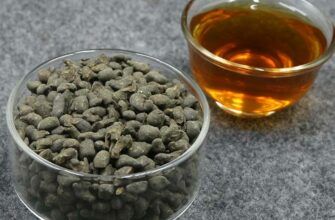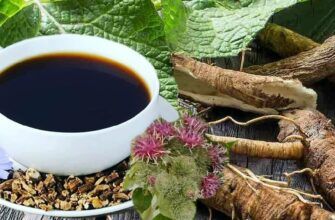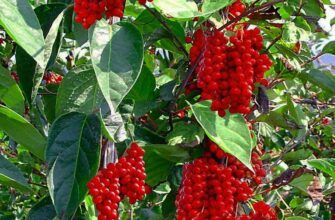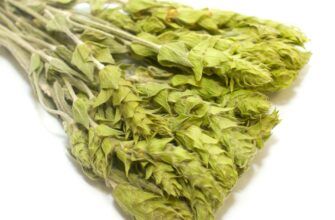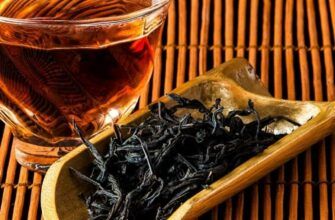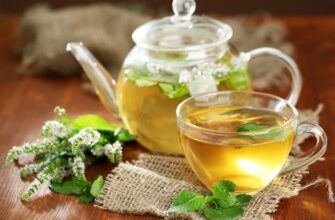San Qi Hua is also called panax notoginseng ginseng. It has long been used as a Chinese herb with magical healing properties. San Qi Hua is also known as pseudo ginseng (panax pseudoginseng ginseng). All parts of this plant are used in the treatment of various diseases such as severe hepatitis, coronary heart disease, and more.
San Qi, literally translated as "three sevens", this name has a twofold character: the roots of San Qi Hua are dug from 3 to 7 years after sowing, plus each plant has 3 leaf petioles and each petiole has 7 petals. Now this plant is mostly grown in the field, it is also called Tien Qi, which means "dividing the field." Due to the fact that this plant contains even more active substances than ginseng, it is sometimes called the "king of ginseng".
What is San Qi Hua
For medicinal purposes, the dried root of panax notoginseng is used. Along with ginseng, it belongs to the genus Panax of the Araliaceae family. Because of its medicinal properties, people have given it quite a few different names, such as Tian Qi, pseudoginseng root, Sanqi, Nepal Sanchi ginseng, three sevens root, Himalaya ginseng, mountain colors, Notoginseng, and many more.
In China, the plant is mainly grown in the provinces of Yunnan and Guangxi. It is usually dug up in late summer - early autumn before flowering or in winter, when the seeds ripen. Depending on what season the crop is harvested in, the plant has two more names - “Qi Chun” (spring seven) and “Dong Qi” (winter seven). Before using the plant for medicinal purposes, you need to remove the dirt, clean it, and dry it in the sun. As a rule, it is used in raw or ground form.
Panax notoginseng ginseng is a perennial herb. It has bamboo-like short, fleshy, woven cylindrical rhizomes, from 2 to 4 cm long and about 1 cm in diameter, with longitudinal wrinkles when dried. A single stem is smooth, about 40 cm tall. Doesn't bear fruit. Habitats are usually near 23.5° latitude and at an altitude of 1500 to 1800 meters above sea level in southwest China. Wild species are rare and now most of them are cultivated.
Useful properties of San Qi Hua
Since the birthplace of San Qi Hua is the Yunnan and Guangxi provinces, it has been used there for many years as a medicinal and edible plant. Since ancient times, it has been recognized as one of the best herbs for improving blood circulation, removing blood stasis, reducing inflammation and relieving pain. Due to its amazing healing properties, this herb is respected and people used to call it "more expensive than gold" and "miraculous herb from the Southern lands."
It is more than just a hemostatic herb. In fact, it generates and invigorates the blood. In the past, this plant was considered such an invaluable medicine that no one was willing to exchange it even for gold. In many sources, San Qi Hua ginseng is called the most valuable Chinese plant because of its unique medicinal and gustatory qualities.
Yunnan Baiao Pien Zi Huang, a company that develops the most popular drugs used in surgery and trauma departments, uses San Qi Hua ginseng as the main ingredient in its medicines. This plant is used in the treatment of a number of different conditions such as upper gastrointestinal bleeding, cerebral thrombosis, concussions, prostatic hypertrophy, bedsores, severe hepatitis, coronary heart disease, lung disease, keloid scars, postoperative adhesions, hemorrhoids and much more.
Pharmacological properties of San Qi Hua
- It leads to a reduction in bleeding time and reduces the time of blood clotting. In addition, may inhibit platelet aggregation and thrombolysis.
- Promotes the proliferation of multifunctional stem cells and thereby increases the production of red blood cells.
- Lowers blood pressure, reduces heart rate, and alleviates drug-induced arrhythmias.
- Expands the cerebral blood vessels and increases the permeability of the cerebral vessels.
- Improves immune reactions, relieves pain, relieves inflammation, slows down the aging process.
San Qi Hua: side effects and contraindications
As a decoction or tea, San Qi Hua is considered relatively safe.
People with "cold syndrome" (poor circulation in the extremities) should use it with caution, as its substances can aggravate the condition.
Women suffering from menstrual irregularities should avoid drinking Sang Qi Hua tea as it may stimulate menstruation. The exception is irregular menstruation due to stagnation of blood.
Do not use during a cold, the patient's condition may worsen.
Don't drink it along with other scented teas, use the tea in its purest form to maximize its health benefits. If you really don't like its natural taste, you can add honey.
Do not consume more than 9 grams per dose and more than 15 grams per day per person. An increase in dosage is allowed only when use of tea to stop bleeding.
Do not use the product during pregnancy, it may adversely affect the formation of the fetus. But tea is an excellent blood tonic and may be helpful in post-hemorrhagic anemia.
Read more:
